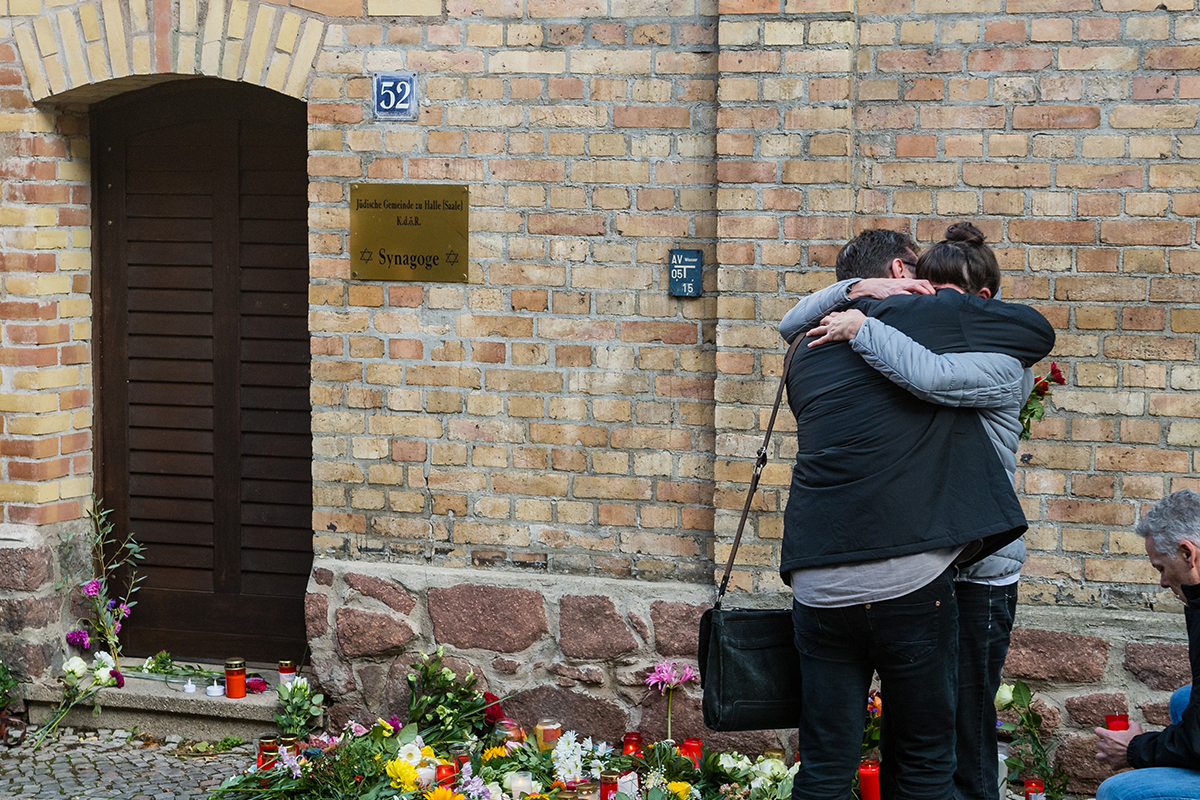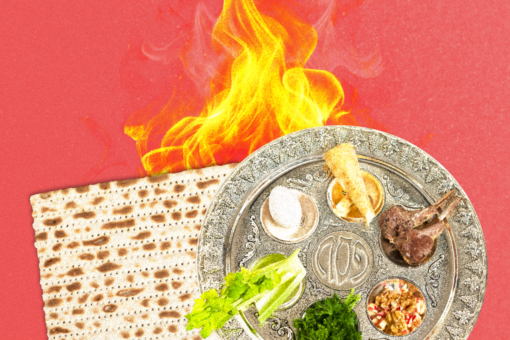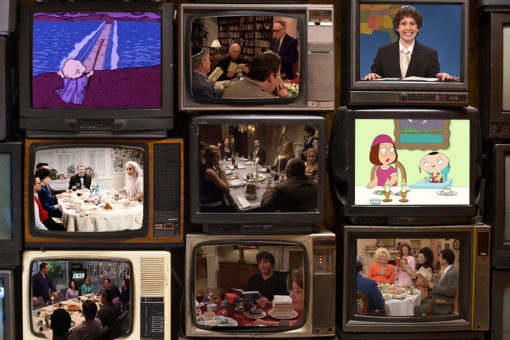The most vivid memories from last Yom Kippur are sounds. The familiar — the haunting melody of Kol Nidre, the methodic repetition of Slichot, the joy of Neilah — clashed with the new: gunfire, emergency sirens, helicopters. These were the sounds of worship disturbed by a neo-Nazi terrorist who tried to kill me and numerous others who had gathered in a synagogue in Halle, Germany for Yom Kippur.
The attack, spawned by the terrorist’s anti-Semitic, misogynistic, and xenophobic ideology, resulted in the death of two people and the physical and psychological injury of many others.
While my physical safety was spared, my survival meant that I joined a group I never imagined I’d be a part of: Jews who have survived violent anti-Semitic attacks.
In the last 12 months, I’ve talked with many people, including friends, rabbis, and therapists, about that day. Many conversations encouraged me to push forward while other conversations left me feeling even more isolated. In the later scenario, the listener was unable to connect with me, afraid of asking the wrong question or triggering a flashback. They just didn’t how to bridge the chasm of my lived experience with their words or actions.
These responses make sense. Such a violent challenge to Jewish life is not something many of us, particularly Americans, have much experience addressing. The day after the attack, a close friend reached out. He had assumed that I wasn’t there because the attack happened in Halle, rather than Berlin, where I live. When I told him that I was, in fact, there, he remarked, “It’s something that’s in the news, but not something that I ever thought would happen to someone I know.”
I’ve heard variations on that idea many times over the past year. It’s true: getting murdered for merely being Jewish is something that, until recently, many of us felt was largely resigned to the past. Yet after the shooting at the Tree of Life synagogue in Pittsburgh in 2018, the shooting at the Chabad in Poway in 2019, and the more recent arson attack on the Chabad at the University of Delaware this past August, being at the receiving end of an anti-Semitic attack is tragically not as rare as we’d hope.
In trying to understand what happened and address the hardest question of “why?” I turned to the book Lessons from Elie Wiesel’s Classroom. Of all the nuggets of wisdom, it’s this line that has helped me move forward the most: “We must turn our suffering into a bridge so that others might suffer less.”
It’s been transformative to turn my trauma into something that can help others. I hope you, dear reader, never experience anything similar to what I went through last Yom Kippur. But should you have to support someone who does, I hope this serves as a bridge to better support them and understand what they might be going through.
1. Acknowledge that you cannot imagine what a survivor is going through.
Very few people experience a near death experience in an anti-Semitic terror attack. The most trusted confidents of mine have made it clear that they cannot personally relate to my experience. Such a simple statement makes more room for the support that enables healing without minimizing what someone has witnessed.
2. We survivors don’t always know what we need.
Though there is no guide to surviving such an attack, Jewish tradition offers many ideas and resources. While I’ve relied heavily on both my community and rituals, such as birkat hagomel, a blessing said after surviving a near-death experience, and visiting the mikveh, a Jewish ritual bath that often mark transitional moments. I am writing my script as I go. For family, friends, and others connected to survivors, this means that how you can best support them can and will change. One day it could mean bringing food; another time it might mean simply sitting next to someone so they’re not alone.
3. Memories stay with us even after public attention subsides.
The attack was major news in Germany and Jewish publications. Yet after the news cycle moves on, survivors often don’t. Trauma is a non-linear process and moving through those phases takes time. Patience and compassion is essential as we survivors navigate trying to regain some normalcy in our lives.
4. Be aware of anniversaries.
Anniversaries are difficult. I don’t think there will ever be a Yom Kippur where I don’t think about what happened — and what could have been. Yet my thoughts aren’t always shared, and people, busy with their own lives, often forget. It can be helpful to save the anniversary date in a calendar and check in around that time. Even if someone is perceived to be doing “better,” it can mean a lot when others acknowledge that we still need support.
5. Ask about triggers and take their needs seriously.
I’m often hyperaware of my surroundings, particularly when I’m in a new environment. I try to live as “normally” as possible with some accommodations. I feel more at ease when those I’m with are able to support me by reminding me that I am not in immediate danger. Sometimes that looks like holding my hand when I hear a loud metallic noise; other times its minimizing the jokes about death, and dying, in my presence. Everybody has different triggers, so don’t be afraid to ask.
6. Sometimes listening is the most powerful thing.
A consistent need has been for someone to listen as I try to work out a memory, idea, or thought. Though I continue to meet with a therapist, having friends seriously listen has been crucial. There is immense power in knowing someone that you’re close with and wants to help you is actively hearing you out. If you can, offer to be that person who listens. It might not be taken, but it means a lot.
As I said to a rabbi that I’m close to, I hope that people are not able to directly relate to what I’ve gone through. But I would not be able to live as resiliently as I am today without all the people in my life who supported me in various ways throughout this difficult year. Words cannot express my gratitude for those who make up my kehillah, my community. I hope that many others, should the need arise, are empowered by these tips to do the same.
Header image by Jens Schlueter/Getty Images.



